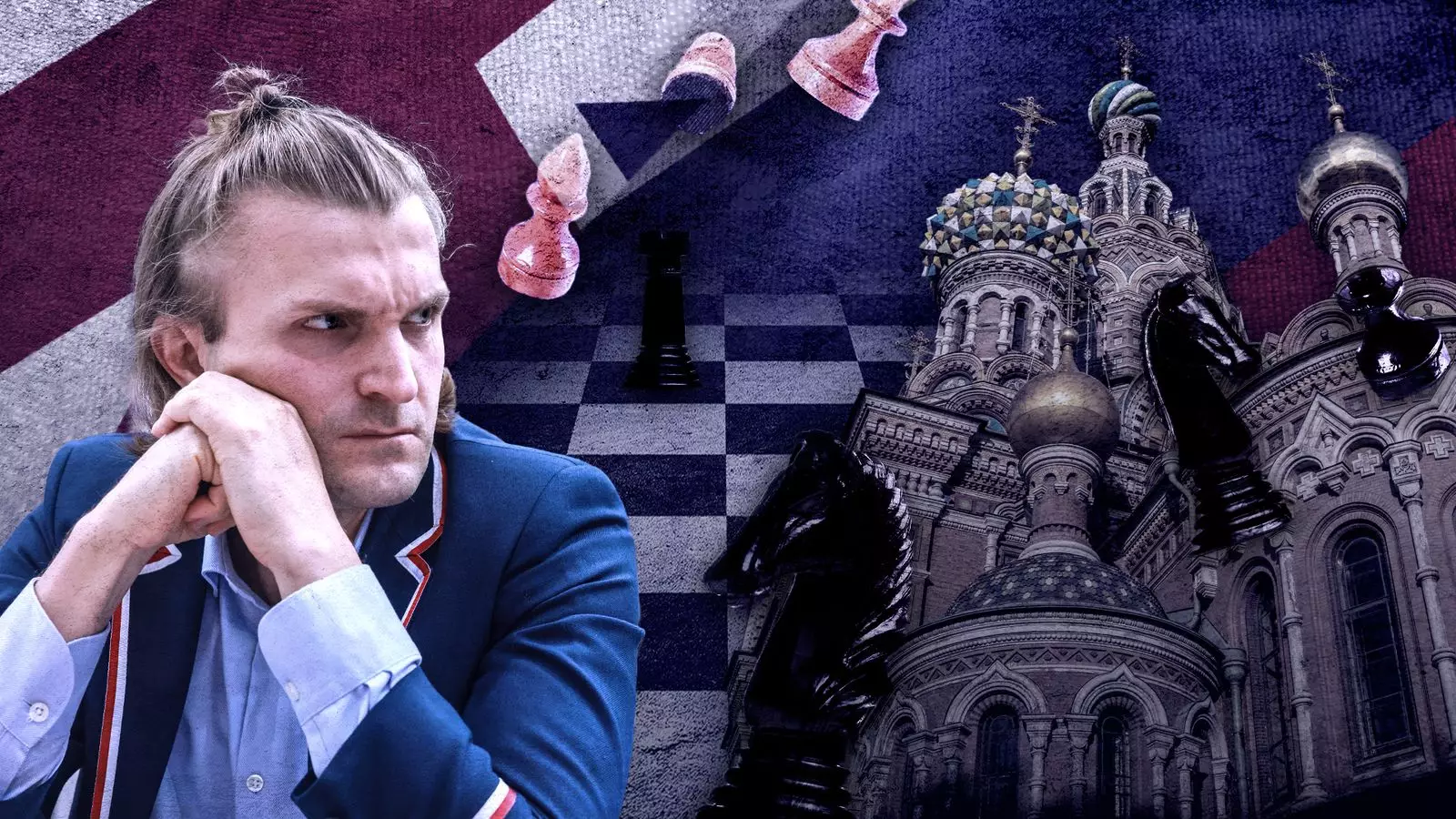Nikita Vitiugov, a name that resonates within the realm of chess, has found his footing in London, far removed from his past as one of Russia’s most promising talents. The 37-year-old grandmaster expresses a comfort in the overcast skies and drizzle of London, which remind him of St. Petersburg’s weather. However, this newfound sense of belonging comes with a inescapable backdrop: the geopolitical turmoil resulting from the war in Ukraine. Vitiugov, who had been a rising star in the Russian chess scene, has transformed his allegiance due to his outspoken views on the conflict, leaving behind not only his homeland but also his identity as a representative of Russian chess.
The chess world has dramatically evolved since the days when titans like Garry Kasparov and Bobby Fischer dominated the headlines, their matches occasionally sparking nationalistic fervor. The period of ideological battles fought upon the 64 squares has largely dissipated. Yet, chess in Russia remains a serious affair, especially among a community of players who continue to navigate the dangerous waters of dissent in light of the ongoing war. Notably, Vitiugov stood firm and publicly opposed the Kremlin’s actions, an act of courage that puts him among a handful of Russian players who have taken a stand.
Vitiugov’s journey from being a heralded national champion to a player representing England symbolizes a significant personal sacrifice. Speaking from a café in North London, he reflects on his situation: “That part of my life was over.” His deep-seated pride in representing Russia was overshadowed by his moral convictions, prompting his decision to pivot towards the English Chess Federation (ECF). Formally switching national allegiances in a competitive sport often involves hefty financial penalties or lengthy waiting periods. For Vitiugov, these barriers meant little when compared to his moral stance, leading him to navigate his transition with the assistance of ECF officials to secure residency for his family.
The realities of living in a democracy underscore his choice; relocating to the UK offered him and his family not just safety but also the freedom to express their opinions—a dramatic shift from the oppressive atmosphere in Russia. Vitiugov cites this liberation as a crucial factor in his family’s decision-making process, especially considering the future of his young son. His transformation from a Russian champion to an English player is marked not only by a change of flag but also by a complete re-evaluation of identity.
Nikita’s switch has revitalized the English chess scene, contributing to an increased level of competition among players. Currently, he ranks second in England and 61st globally. His journey to London not just adds strength to a prominent team—ranked 15th in the world—but also creates valuable opportunities for the next generation of chess players. His involvement in training aspiring young talents marks a significant turn in his story, as he seeks to mirror the paths set by his own mentors.
As he prepares for the London Chess Classic, hosted at Arsenal’s Emirates Stadium, Vitiugov reflects on the irony of competing for accolades in a venue dedicated to a rival London football club (Tottenham Hotspur). This underlying theme adds a touch of humor to his narrative, yet it simultaneously opens discussions about identity, rivalry, and belonging.
When discussing his chess idols, Vitiugov prefers to draw comparisons with Viktor Korchnoi rather than Garry Kasparov. Korchnoi, who also hailed from St. Petersburg, famously defected from the Soviet Union in the 1970s, a bold statement of independence that parallels Vitiugov’s journey today. Such parallels are poignant; both grandmasters navigated turbulent waters in their personal and professional lives—Korchnoi during the Cold War and Vitiugov amidst modern geopolitical conflicts.
While Vitiugov has seamlessly integrated into the English chess community, the lingering question about the future lingers: could he ultimately claim the title of British champion next year? His contributions undoubtedly enrich English chess, and as he roots for his personal growth and success, he also champions a broader narrative of resilience and integrity within the sport.
In sum, Nikita Vitiugov’s journey reflects not just a transition of nationalities but a profound assertion of values and principles in a world often fraught with conflict. His story embodies the evolution of chess into a platform for personal freedom and ethical engagement, leaving an indelible mark on both Russian and English chess heritage.


Leave a Reply